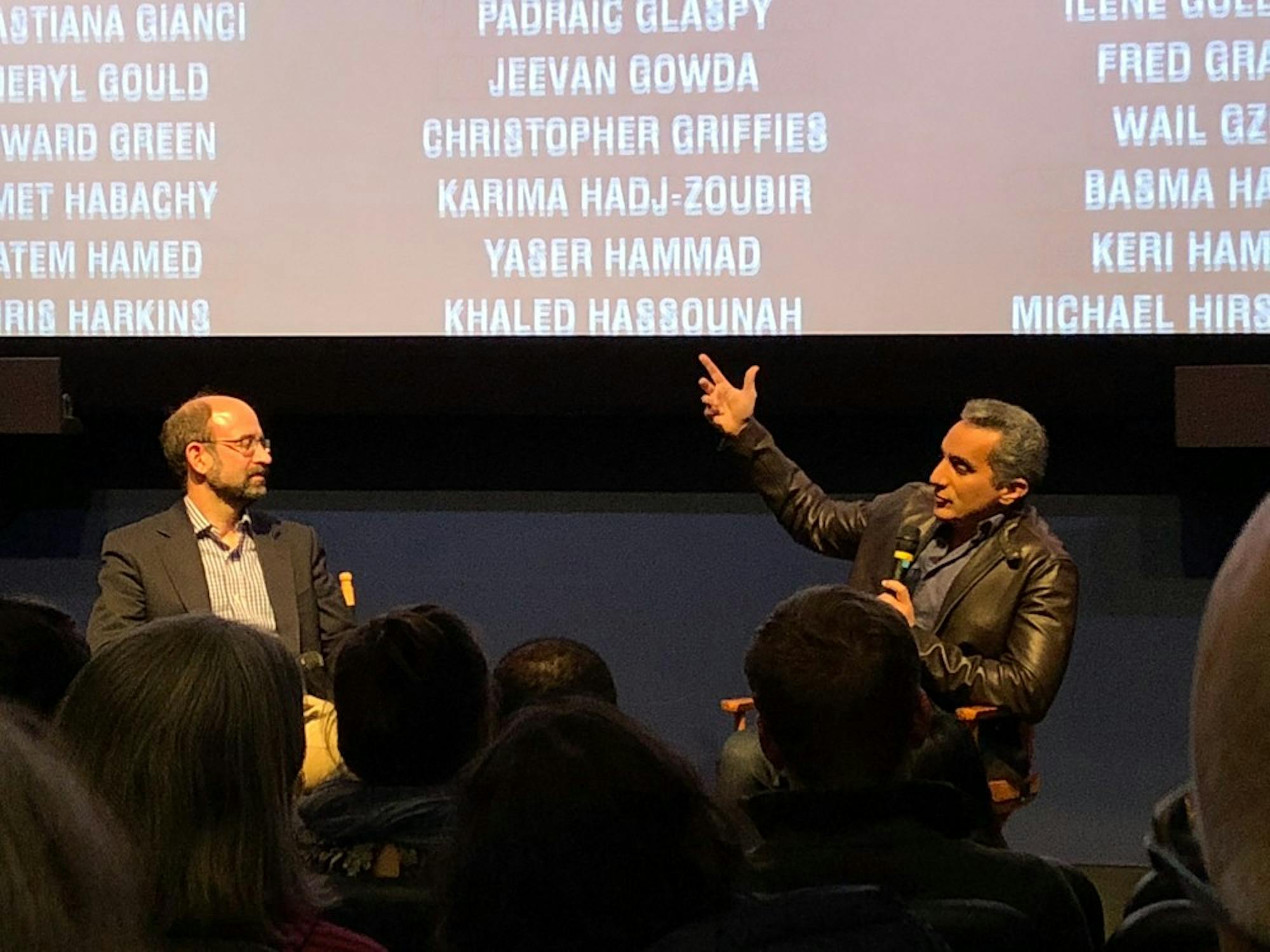Egyptian comedian Bassem Youssef presented “Tickling Giants,” a documentary about Youssef’s life, with a following question and answer session in the Black Family Visual Arts Center’s Lowe Auditorium on Feb. 28. In addition to the sold-out screening, Youssef also shared his story the next day in a public lecture entitled “Laughing Through the Arab Spring” in Silsby 028.
Youssef, originally a cardiothoractic surgeon, created a satirical political talk show called “Al Bernameg” in 2011, which eventually led to his exile from Egypt in November 2014. The show was created during former Egyptian president Hosni Mubarak’s rule and aired through the Arab Spring, continuing through current president Abdel Fattah el-Sisi’s tenure.
Jonathan Smolin in an email statement, chair of the Asian and Middle Eastern languages department and Arabic professor who moderated the question and answer sessions, wrote in an email that Youssef was very influential in the development of the Arab Spring. His show in Egypt, “Al Bernameg,” with a weekly audience of about 30 to 40 million, challenged political authorities in the country and held other news media accountable.
After fleeing to Dubai and living there for over a year, Youssef moved to the United States two and a half years ago. He currently lives in Oakland, California with his family.
Raleigh Nesbitt ’19, who attended the film screening, said she found the movie describing his life informative and compelling.
Nesbitt said Youssef’s courage and dedication to spreading truth is inspiring, and she enjoyed learning about Youssef’s life in the United States, his future agenda and his perspective on what constitutes activism.
During the lecture, Youssef said that his new goal is to increase his presence in American media to continue telling his story. Currently, he is pushing his career further by trying to sell a television script that he has written, touring as a comedian and promoting his new book, “Revolution for Dummies: Laughing Through the Arab Spring,” in which he helps his readers gain an insight into the Arab Spring, the Egyptian Revolution and political unrest in the Middle East, he said in his lecture.
Youssef was invited to campus to celebrate the launch of the new interdisciplinary Middle Eastern studies program, Smolin said.
“We’re hosting a number of historically important visitors from the Middle East, such as Wael Ghonim and Alaa Al Aswany — [Youssef’s] visit is part of this series,” he wrote in an email statement.
During the question and answer portion of the public lecture, Youssef was asked about the reasons for his shift from an Egyptian audience to an American one. He responded by saying he is now a part of the United States and cannot pretend his previous show is still continuing.
Youssef added that he hopes to stay in the United States to create a future for his family. The physical distance from Egypt makes him feel disconnected from the country, but he is still concerned for the safety of his loved ones who remain there, he said.
“It’s the same fight, but it’s shifted to a new battle ground,” Youssef said.
Oliver Byles ’21, who is currently enrolled in Arabic 2, “First-Year Courses in Arabic” and Arabic 10, “Introduction to Arabic Culture,” attended the film, its following Q&A, Youssef’s public lecture and his Arabic 10 class visit.
Byles said Youssef’s candor stuck with him and that he admires that Youssef admitted to a lack of knowledge surrounding certain questions, a dislike of particular questions and questions to which answers did not exist.
“Much of his political comedy comes from being a realist and being able to spot the false and ridiculous,” he said.




